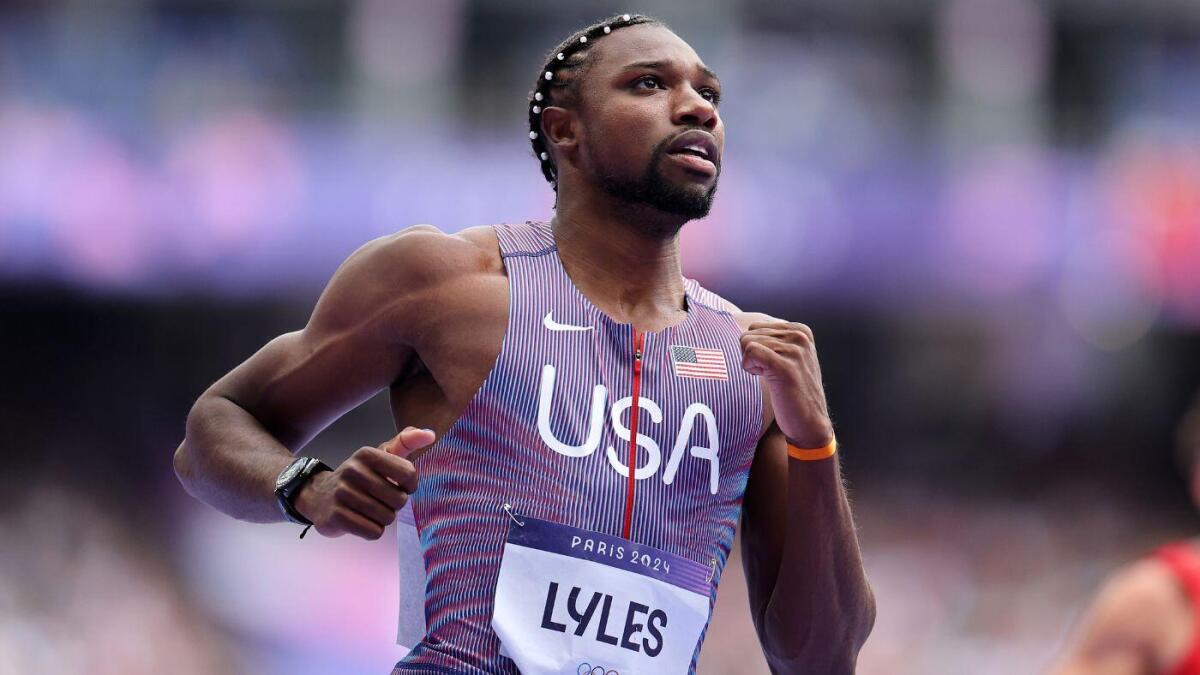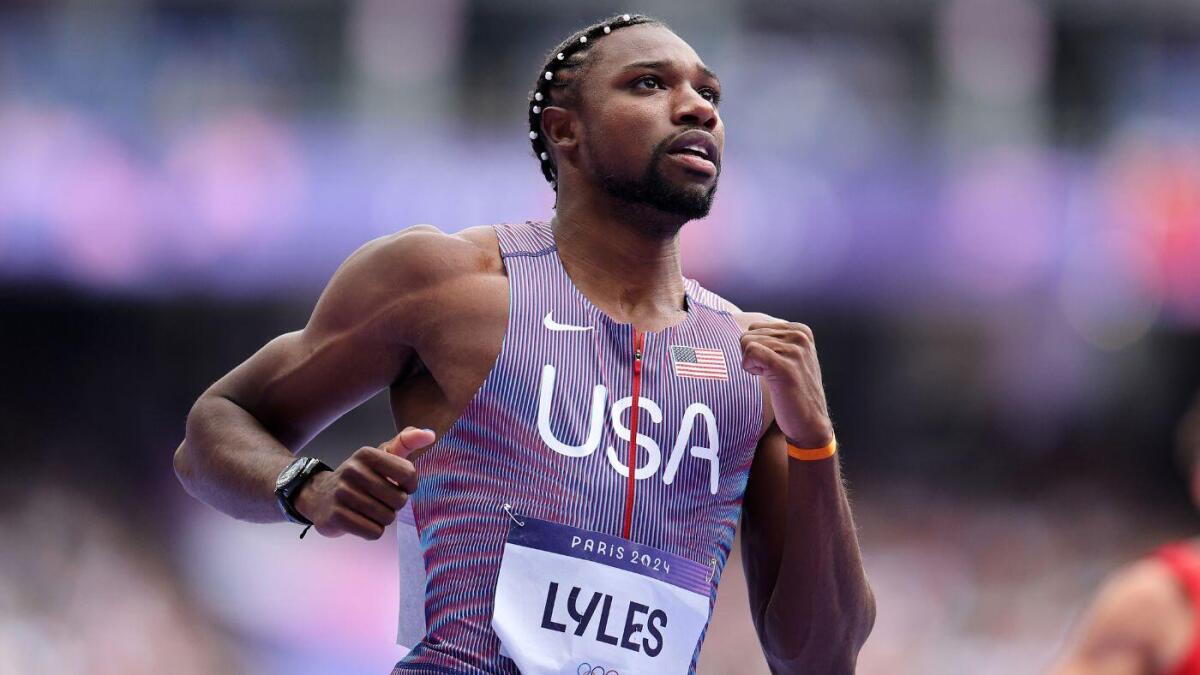The Canceled Showdown: A Detailed Analysis
The Birth of a Spectacle
The idea of a race between Noah Lyles and Tyreek Hill was born out of a moment of athletic triumph and bravado. Lyles, fresh off his gold medal win at the 2024 Paris Olympics, had just set a personal best time of 9.79 seconds in the 100-meter dash. Hill, a wide receiver for the Miami Dolphins, known for his speed on the football field, saw this as a challenge he couldn’t resist. The back-and-forth between the two athletes quickly captured public imagination, with the proposed race distance varying from 40 to 100 meters and potential locations ranging from Times Square to Miami.
The allure of this event was undeniable. It promised a unique crossover between track and field and professional football, leveraging the star power of both athletes. The potential audience was massive, and the media coverage was guaranteed to be extensive. However, the path from challenge to event was fraught with complications, leading to an eventual cancellation that left fans and analysts alike scratching their heads.
The Mysterious Cancellation
The official explanation for the cancellation was vague and left much to the imagination. Lyles cited “personal reasons” and “complications,” but the lack of specificity fueled speculation and distrust. The timing of the cancellation, so close to the planned event date, only added to the confusion and skepticism.
The Financial Factor
One of the most significant complications was the lack of sponsor buy-in. Securing adequate financial backing proved to be a substantial hurdle. The financial aspect is often overlooked in the excitement of such events, but it is crucial. Sponsors provide the necessary funds to cover logistics, marketing, and other expenses. Without their support, organizing a large-scale event becomes nearly impossible.
The Timing and Preparation
Lyles emphasized that preparations were well underway, indicating a genuine intention to compete. This suggests that the cancellation was not a last-minute decision but rather the result of accumulating issues. The timing of the cancellation, however, was poor. It left fans disappointed and raised questions about the organizers’ ability to manage the event.
The Athletes’ Reactions
Lyles’ Perspective
Lyles maintained a relatively low profile regarding the cancellation, sticking to his explanation of “personal reasons.” His approach was calm and composed, avoiding direct confrontation with Hill. This strategy, while avoiding further controversy, left many questions unanswered and allowed speculation to run wild.
Hill’s Skepticism
Tyreek Hill, on the other hand, was more vocal. He publicly expressed skepticism about the stated reasons for the cancellation, implying that Lyles might be hesitant to face him. Hill’s comments, delivered through various media channels, suggested he believed Lyles was backing down from a challenge he had initially embraced. This public back-and-forth added a layer of drama to the situation, transforming the cancellation from a simple logistical issue into a perceived display of competitive insecurity.
The Context of Lyles’ Performance
To fully understand the situation, it’s essential to consider Lyles’ recent performance. His Olympic gold medal and personal best time of 9.79 seconds solidified his position as one of the world’s fastest men. At the peak of his athletic prowess, a potential loss to a non-sprinter seemed highly unlikely. This context strengthens Hill’s skepticism. Why would a champion sprinter, enjoying a career high, withdraw from a race against a football player, unless there were legitimate, unforeseen circumstances or a genuine fear of damaging his reputation?
The Broader Implications
Crossover Events and Logistics
The cancellation of the Lyles-Hill race highlights the complexities of organizing crossover events between different sports. While the potential for attracting a large audience is significant, the logistical and financial challenges can be substantial. Securing sponsorships, coordinating schedules, and ensuring fair competition require meticulous planning and a strong commitment from all parties involved.
Athlete Branding and Public Perception
The incident underscores the importance of athlete branding and public perception. Both Lyles and Hill have carefully cultivated their public images, and the cancellation has impacted both. Lyles risks appearing hesitant or lacking confidence, while Hill risks appearing overly aggressive or dismissive. Managing these perceptions will be crucial for both athletes moving forward.
The Unanswered Questions
Despite the explanations offered, several questions remain unanswered. The specific nature of the “personal reasons” remains undisclosed, leaving room for continued speculation. The extent to which sponsor issues contributed to the cancellation is also unclear. The public disagreement between Lyles and Hill has created a sense of lingering doubt. While Lyles maintains his reasons were legitimate, Hill’s skepticism has resonated with many fans.
A Missed Opportunity and a Cautionary Tale
The canceled race between Noah Lyles and Tyreek Hill represents a missed opportunity to showcase the athleticism of two exceptional athletes and bridge the gap between different sporting worlds. More than just a race, it was a spectacle built on curiosity and competitive spirit. The fallout serves as a cautionary tale for future crossover events, emphasizing the need for thorough planning, transparent communication, and a shared commitment from all involved. The speed of both athletes remains undeniable, but the race itself will remain a “what if” in the annals of sports entertainment.












